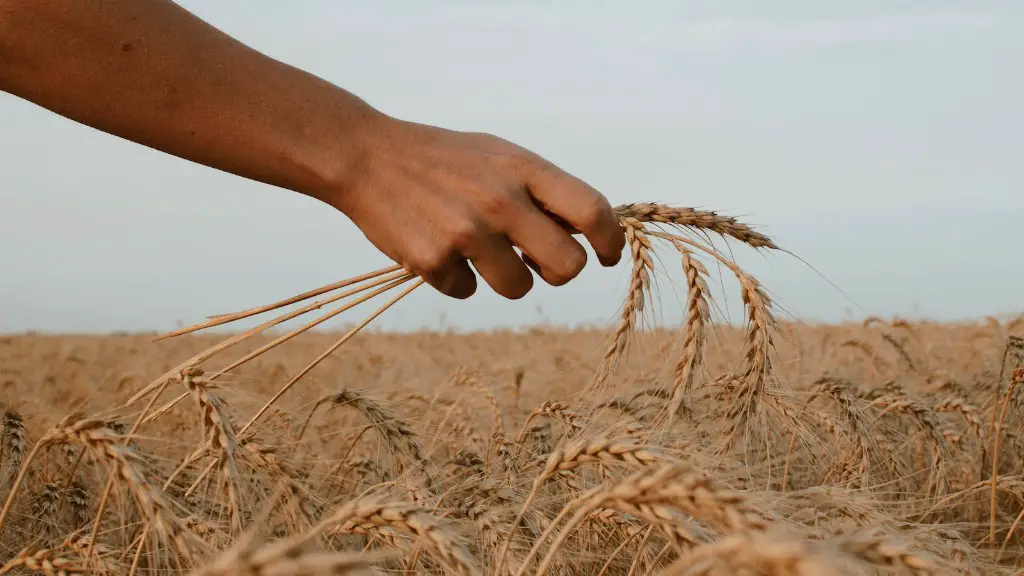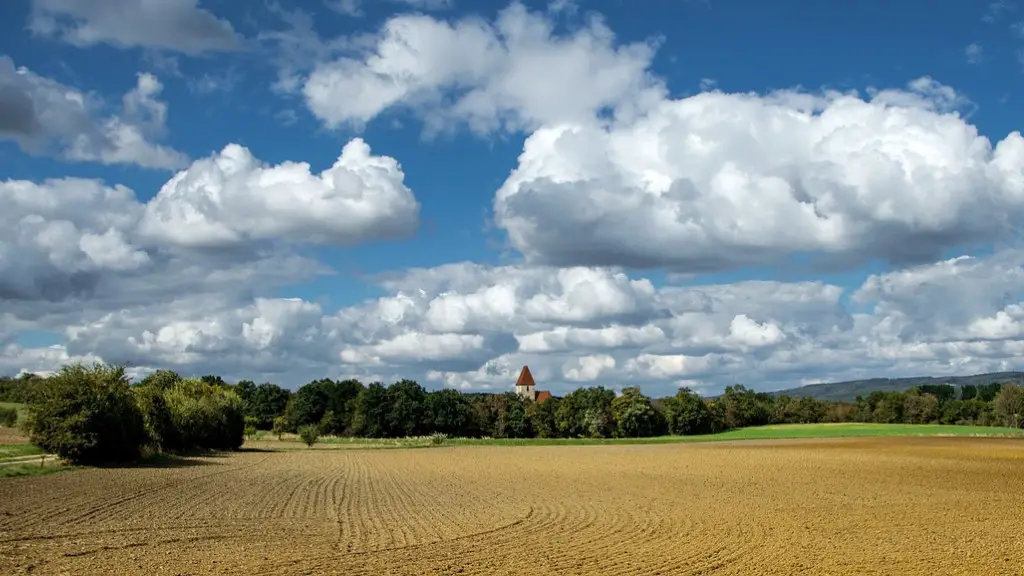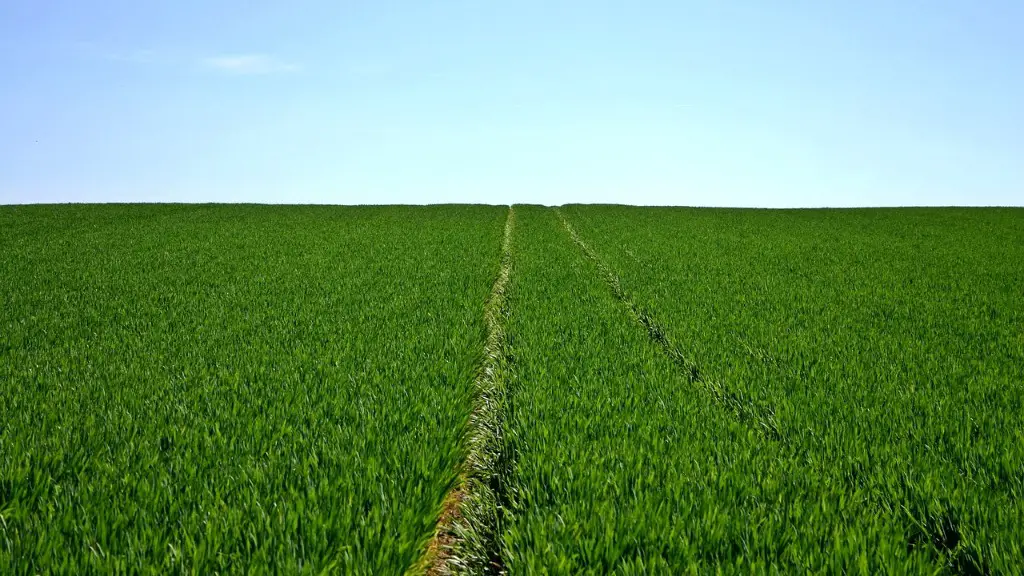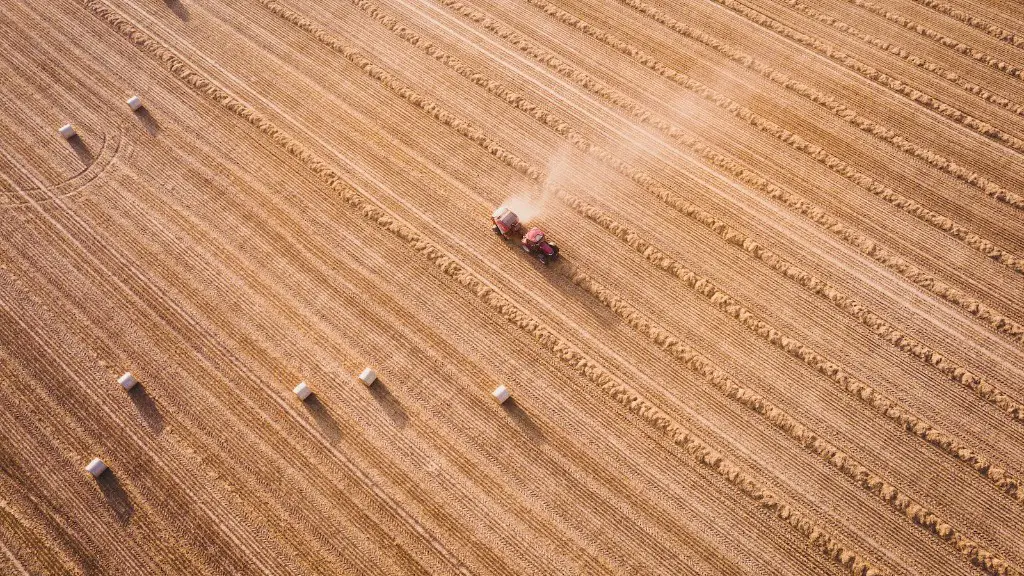Georgia’s agricultural industry has a significant impact on the state’s workforce. Agriculture is one of the state’s largest industries, and it employs a large number of Georgians. In addition to the direct employment of farmers and agricultural workers, agriculture supports many other jobs in the state, including jobs in food processing, transportation, and marketing.
The agricultural industry also has a strong impact on Georgia’s economy. The state’s farmers produce a wide variety of crops, including peanuts, cotton, peaches, and tobacco. Agriculture is a major export industry for Georgia, and the state’s farmers sell their crops to customers all over the world. The state’s agricultural industry also supports a number of other businesses, including equipment manufacturers and food retailers.
Georgia’s agricultural industry is an important part of the state’s workforce and economy. The industry provides many jobs for Georgians and contributes to the state’s economy.
The agriculture industry employs a significant portion of Georgia’s workforce. In 2016, the industry employed over 317,000 people, accounting for 9.6% of the state’s total workforce. The industry has a direct economic impact of $73.6 billion on the state’s economy, and an indirect impact of $155.8 billion. The agriculture industry is also one of the state’s leading employers of migrant and seasonal workers.
How does agriculture affect the workforce?
The agricultural and food sectors play a vital role in the US economy, providing 105 percent of total employment. In 2021, there were 211 million full- and part-time jobs related to agriculture and food, making it one of the largest employers in the country. The sector contributes billions of dollars to the economy each year and is a major driver of rural development. The Agricultural and Food Industries provide a multitude of products and services that are essential to our way of life.
Agriculture is a vital part of Georgia’s economy, contributing approximately $694 billion annually. The UGA Center for Agribusiness & Economic Development is a leading resource for information and research on the state’s agricultural industry.
Why is agriculture so important in Georgia
Agriculture remains an important sector in terms of GDP contribution for Georgia. Agriculture accounted for 7-8 percent of GDP for the last five years. The sector also provides an important safety net for the rural population, considering that over 40 percent of Georgia’s population lives in rural areas.
The Georgian economy is heavily reliant on agriculture, with the sector accounting for more than 50 percent of the country’s labor force and contributing a significant portion to its GDP. The government has identified agriculture as a key priority area for development, and has put in place a number of policies and initiatives to support the sector. One of the key priorities is to increase food and agricultural production, in order to meet the growing demand from the country’s population and improve food security. The government is investing in infrastructure and research, as well as providing financial and technical support to farmers. It is also working to increase access to markets, both domestic and international, for Georgian agricultural products.
How much does agriculture contribute to employment?
Agriculture is a vital sector of the economy, employing 7% of the working population and contributing $10-billion to exports. However, the sector faces significant challenges, including a trade deficit of $64-billion. The government is committed to supporting the sector and is working to increase agricultural productivity and competitiveness.
There are a number of factors that have contributed to unemployment in the farming sector. Population pressure has led to more people competing for jobs in agriculture, while landlessness and environmental constraints have made it difficult for farmers to expand their operations. Technological changes have also made it easier for farmers to mechanize their operations, which has led to fewer jobs for farm workers.
What are three impacts of agriculture?
While negative impacts such as pollution and degradation of soil, water, and air are serious, agriculture can also have positive impacts on the environment. Crops and soils can trap greenhouse gases, and certain farming practices can mitigate flood risks.
Georgia ranks second in the nation for cotton, cucumbers, pullets, and watermelon; third for bell peppers, peaches, and sweet corn. This is due to the state’s climate and fertile soils. Georgia’s farmers take advantage of the long growing season and produce a variety of crops.
What are the main impacts of agriculture
Land denudation, aquatic toxicity; leaching, run off and lifetime health equivalent are some of the complicated environmental hazard and health menace that both agricultural activities and food processing can cause the environment and the occupants. Some of these effects can be controlled and even prevented through the use of good agricultural practices and processing methods.
The individual income tax is Georgia’s top revenue source, generating between 40 and 45 percent of the state’s total revenue. The tax is imposed on wages, salaries, tips, and other forms of compensation, as well as interest, dividends, and capital gains. The tax rates range from 1 percent to 5.75 percent, with higher rates applied to higher incomes. The individual income tax is a major source of revenue for the state, and it is important to ensure that it is properly managed and enforced.
Why is agriculture important to our state?
Agriculture provides us with the food we eat and is vital to our survival. It also supports the economy by providing jobs and generating income. In addition, agriculture has a major impact on the environment. It can help to conserve natural resources, improve soil quality, and protect wildlife.
Agriculture is a vital part of society, providing food and other products for people to consume, and also supporting livelihoods and economies. Agriculture impacts society in many ways, and is an essential part of our world.
What is the main agriculture of Georgia
Georgia is an ideal state for growing and producing various agricultural commodities due to its long growing seasons, favorable climate, and vast amount of operating farmland. The state leads the nation in production of peanuts, eggs, and boilers, making it a valuable agricultural state.
California is the top agriculture-producing state in the US in terms of cash receipts. This is due to the state’s large size and diverse climate, which allows for a wide variety of crops to be grown. California is also home to a large number of farms, which contributes to its high cash receipts.
What state has the most farm workers?
It is estimated that between 1/3 and 1/2 of all farmworkers in America reside in California. This is roughly 500,000 to 800,000 individuals. It is further estimated that approximately 75% of California’s farmworkers are undocumented. This figure is even higher in Santa Cruz County, where it is estimated that 83% of farmworkers are undocumented.
Agriculture is a key sector in the global economy, providing food, jobs and incomes for billions of people. It is also a sector that is particularly vulnerable to the impacts of climate change.
Climate change is already making it harder for farmers to grow crops and rear livestock, and is expected to continue to do so in the future. This will have a major impact on food security and the livelihoods of those who depend on agriculture.
It is therefore crucial that we take steps to adapt to the changing climate, and to help farmers to become more resilient to the impacts of climate change. This includes investing in research and development to improve crop yields, and providing support to small-scale farmers to help them to adapt to the changing conditions.
Final Words
The agriculture industry in Georgia provides many jobs for the state’s workforce. Agriculture-related jobs make up a significant percentage of the state’s employment sector. In addition to farm workers, agricultural jobs include positions in food processing, marketing, and distribution. Agriculture also has a ripple effect on other sectors of the economy, such as transportation and manufacturing.
The agricultural industry in Georgia is responsible for many jobs in the state. Agriculture affects Georgia’s workforce in a positive way by providing many employment opportunities. The industry also has a negative impact on the workforce by causing seasonal unemployment.





